
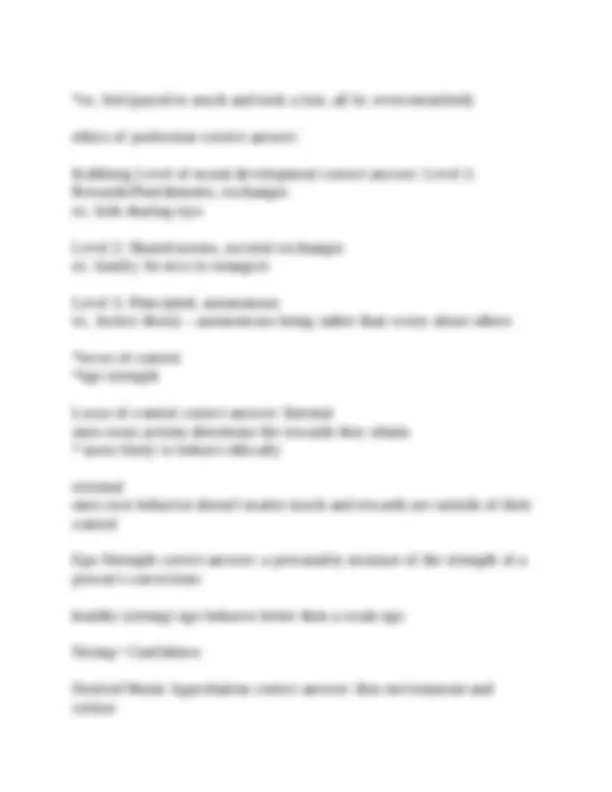
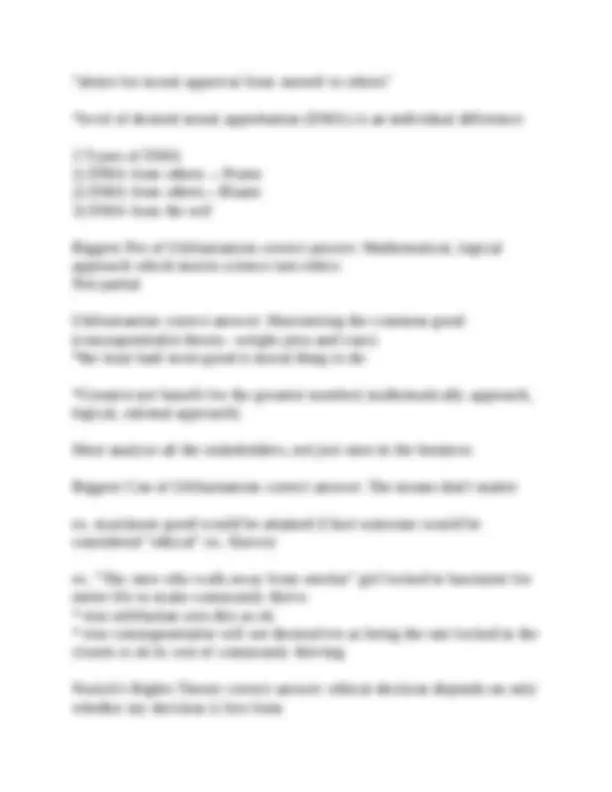
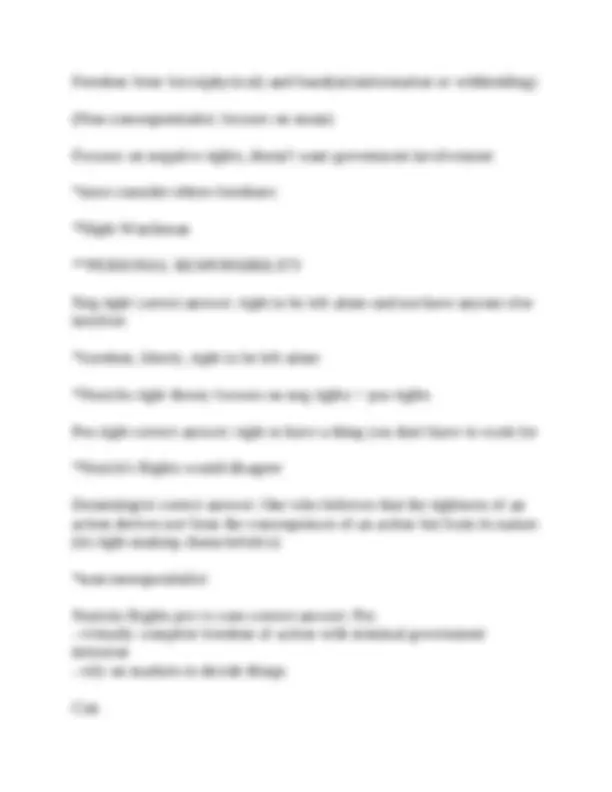
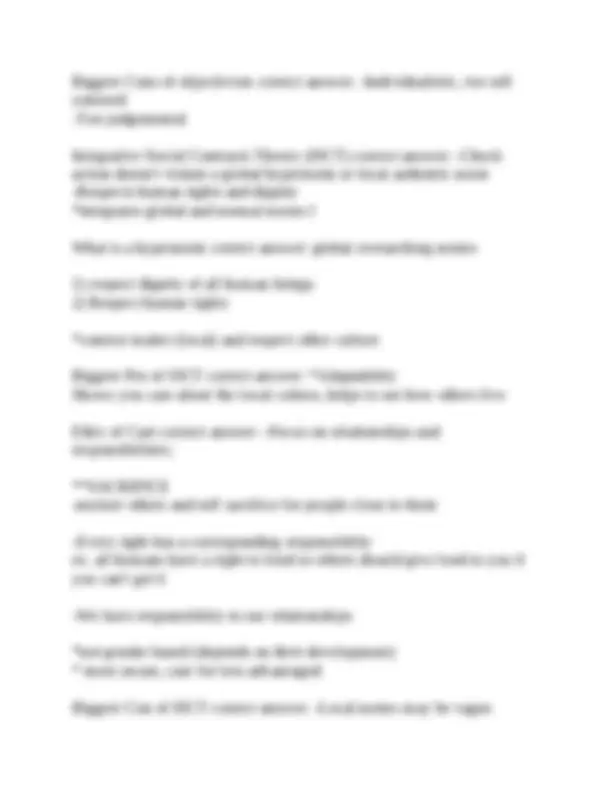
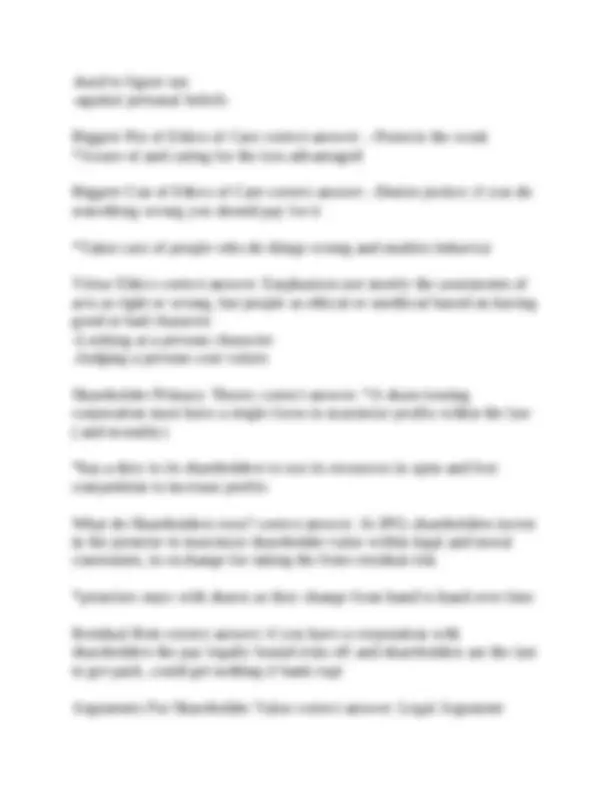
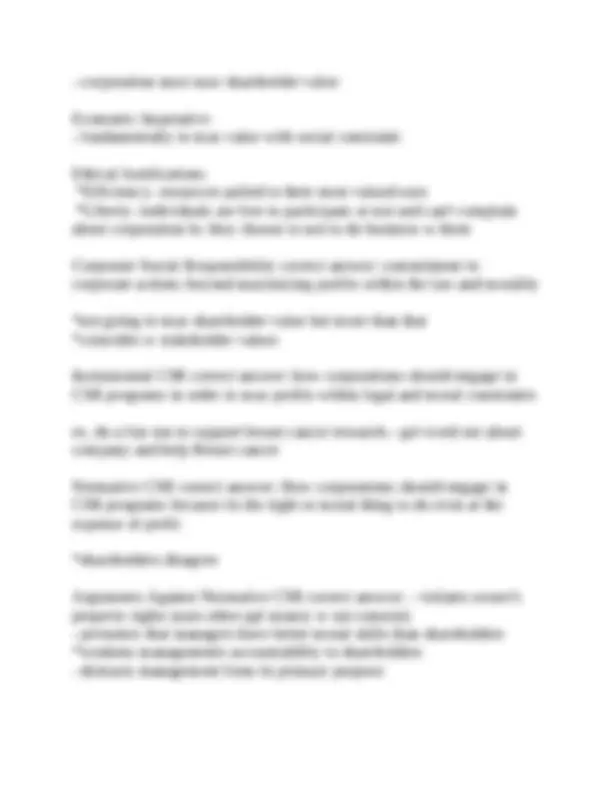
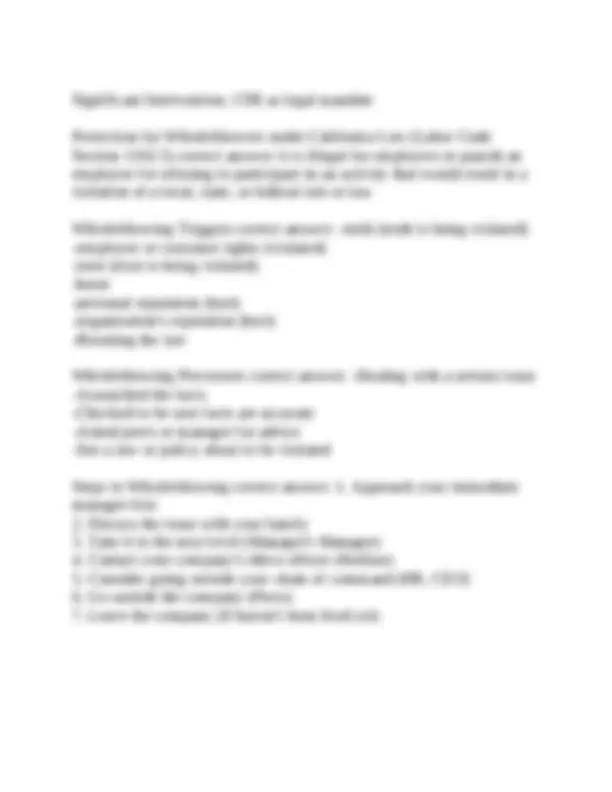


Study with the several resources on Docsity

Earn points by helping other students or get them with a premium plan


Prepare for your exams
Study with the several resources on Docsity

Earn points to download
Earn points by helping other students or get them with a premium plan
Community
Ask the community for help and clear up your study doubts
Discover the best universities in your country according to Docsity users
Free resources
Download our free guides on studying techniques, anxiety management strategies, and thesis advice from Docsity tutors
A comprehensive set of questions and answers covering key concepts in business ethics. It explores various ethical theories, including utilitarianism, nozick's rights theory, rawls' theory of justice, objectivism, integrative social contracts theory, and ethics of care. The document also delves into ethical decision-making frameworks, group pressures, organizational pressures, cognitive biases, and the ethics of professions. It is a valuable resource for students studying business ethics, providing insights into ethical dilemmas and decision-making processes.
Typology: Exams
1 / 13

This page cannot be seen from the preview
Don't miss anything!








Sound ethical decision-making correct answer: 1. Gather the facts
"desire for moral approval from oneself to others" *level of desired moral approbation (DMA) is an individual difference 3 Types of DMA
Freedom from force(physical) and fraud(misinformation or withholding) (Non-consequentialist; focuses on mean) Focuses on negative rights, doesn't want government involvement *must consider others freedoms *Night Watchman **PERSONAL RESPONSIBILITY Neg right correct answer: right to be left alone and not have anyone else interfere *freedom, liberty, right to be left alone *Nozicks right theory focuses on neg rights > pos rights Pos right correct answer: right to have a thing you don't have to work for *Nozick's Rights would disagree Deontologist correct answer: One who believes that the rightness of an action derives not from the consequences of an action but from its nature (its right-making characteristics) *nonconsequentialist Nozicks Rights pro vs cons correct answer: Pro
"If I could be neutral what would I think would be the best way to set up society" Biggest Con of RTJ correct answer: -Denies free will and meritocracy *People are determined by their biology, genetics and environment- they have little say
Biggest Cons of objectivism correct answer: -Individualistic, too self centered -Too judgemental Integrative Social Contracts Theory (ISCT) correct answer: -Check action doesn't violate a global hypernorm or local authentic norm -Respects human rights and dignity *integrates global and normal norms f What is a hypernorm correct answer: global overarching norms
Impact of Normative CSR correct answer: Going Concern; shareholders expectations are undermined, and owners of records at announcement may for entire CSR redirection *shareholders lose money Startup; Investors purchase IPO shares with full knowledge of potential for lower market price Challenges to Shareholder Value correct answer: - Difficult rely on self- interested businesspeople to act on others' behalf (including shareholders) market mechanisms are required to rein them in
Significant Intervention; CSR as legal mandate Protection for Whistleblowers under California Law (Labor Code Section 1102.5) correct answer: it is illegal for employers to punish an employee for refusing to participate in an activity that would result in a violation of a local, state, or federal rule or law Whistleblowing Triggers correct answer: -truth (truth is being violated) -employee or customer rights (violated) -trust (trust is being violated) -harm -personal reputation (hurt) -organization's reputation (hurt) -Breaking the law Whistleblowing Precursors correct answer: -Dealing with a serious issue -Assembled the facts -Checked to be sure facts are accurate -Asked peers or manager for advice -See a law or policy about to be violated Steps to Whistleblowing correct answer: 1. Approach your immediate manager first